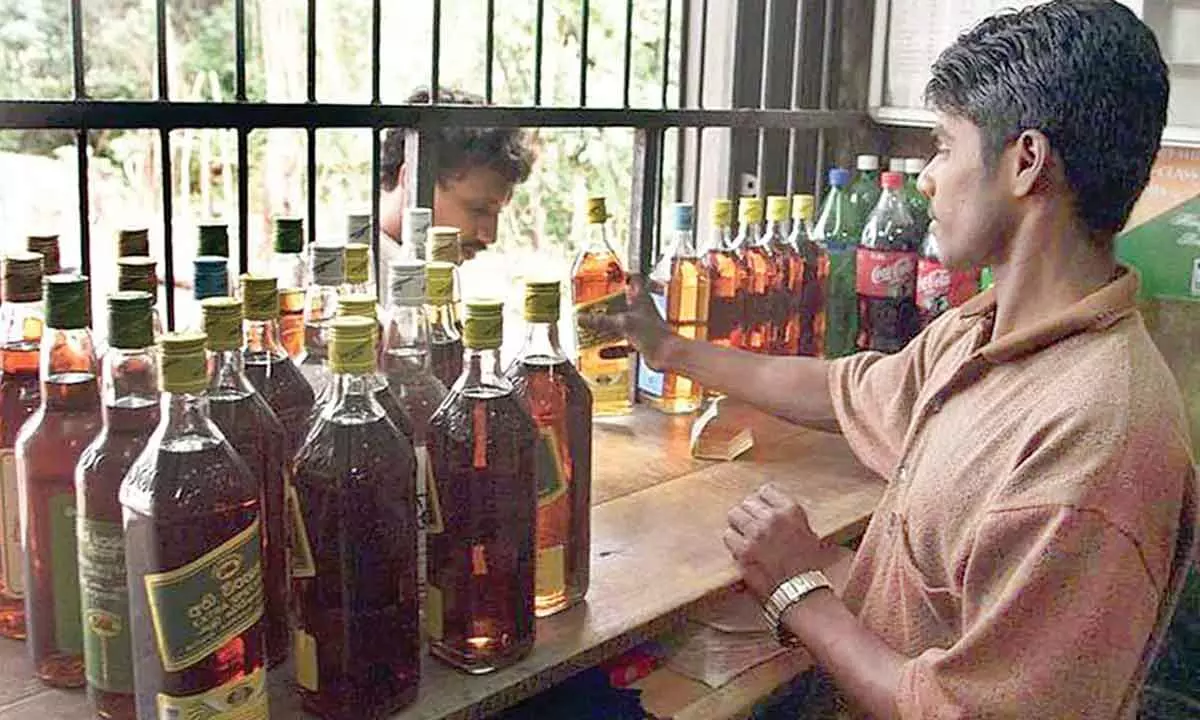Liquor revenue: Short-term gain, long-term drain
Funding freebies and welfare schemes from liquor tax revenues are like robbing the family head and giving it to his family members
image for illustrative purpose

Freebies and welfare schemes of state governments funded mainly from liquor tax revenues are like robbing the family head and giving it to his family members, say experts.
However, they also agree that tax revenue from liquor is a major source of revenue for many states in the country like Uttar Pradesh, Maharashtra, Tamil Nadu, Karnataka, Andhra Pradesh and others and it is not easy to cultivate alternate revenue sources.
"Over Rs 2.70 lakh crore is earned by the Indian states from liquor sales. It is a major source and a quick alternative source cannot be found," Dr. K.R. Shanmugam, Director, Madras School of Economics said.
According to him, states charge excise, VAT and other taxes on liquor. Tamil Nadu is known for freebies and the government also retails liquor. The state has recently revised upwards the liquor prices. It earns about Rs 37,000 crore as revenue which is about 21 per cent of its total revenue, said Shanmugam.
Further the state's debt: state gross domestic product (SGDP) at the end of FY23 is estimated to be over 26 per cent, Shanmugam said. According to him, a sustainable debt: SGDP ratio will be 20 per cent.
Indian states should curtail their wasteful expenditure to control their debt and improve their fiscal position. Shanmugam said alcohol is bad for health and while it may get revenue from the government in the short run, in the long run, the outgo for the state will be high in the form of healthcare.
Further the economic cost of a person consuming liquor should also be taken into account. "Nowadays even school goers have taken to drinking, which is not a healthy sign for the state and the country," he said. Queried about alternate revenue sources for the states he said it is very limited.
The excise duty on alcohol accounts for a major share of the state's own tax revenue. Hence the states do not want it under the Goods and Services Tax (GST) regime.
"Perhaps the Central government can allow the states to levy Income Tax on their citizens. There are states who are complaining that their citizens contribute a huge amount of taxes to the Central government but get only a small share from the Centre," Shanmugam said.
Introduction of prohibition by individual states will not work as drinkers can procure the bottles from the neighbouring states. "There should be an all India policy by the Central government and implemented by the states for restricting the availability of the liquor - fixing monthly quota, linking aadhaar card with the liquor sales and other ways," Shanmugam said.
In Tamil Nadu, the two major parties - AIADMK and DMK - do not want to implement prohibition as alcohol is a major revenue source. The DMK, which demanded prohibition in Tamil Nadu while out of power, is now silent on the issue.
It is only the PMK party that is steadfast in its demand for banning liquor. According to PMK, nearly 30 per cent of people who come to the government hospitals have health issues connected with liquor. A reduction in this spend will increase the amount available with the government, the party has said. However, political parties have a short term goal of capturing/retaining power and freebies have become a tool. While the Supreme Court is hearing a case against the freebies, state governments want to boost their revenue to announce populist measures.

